Artificial Intelligence – Field of Study
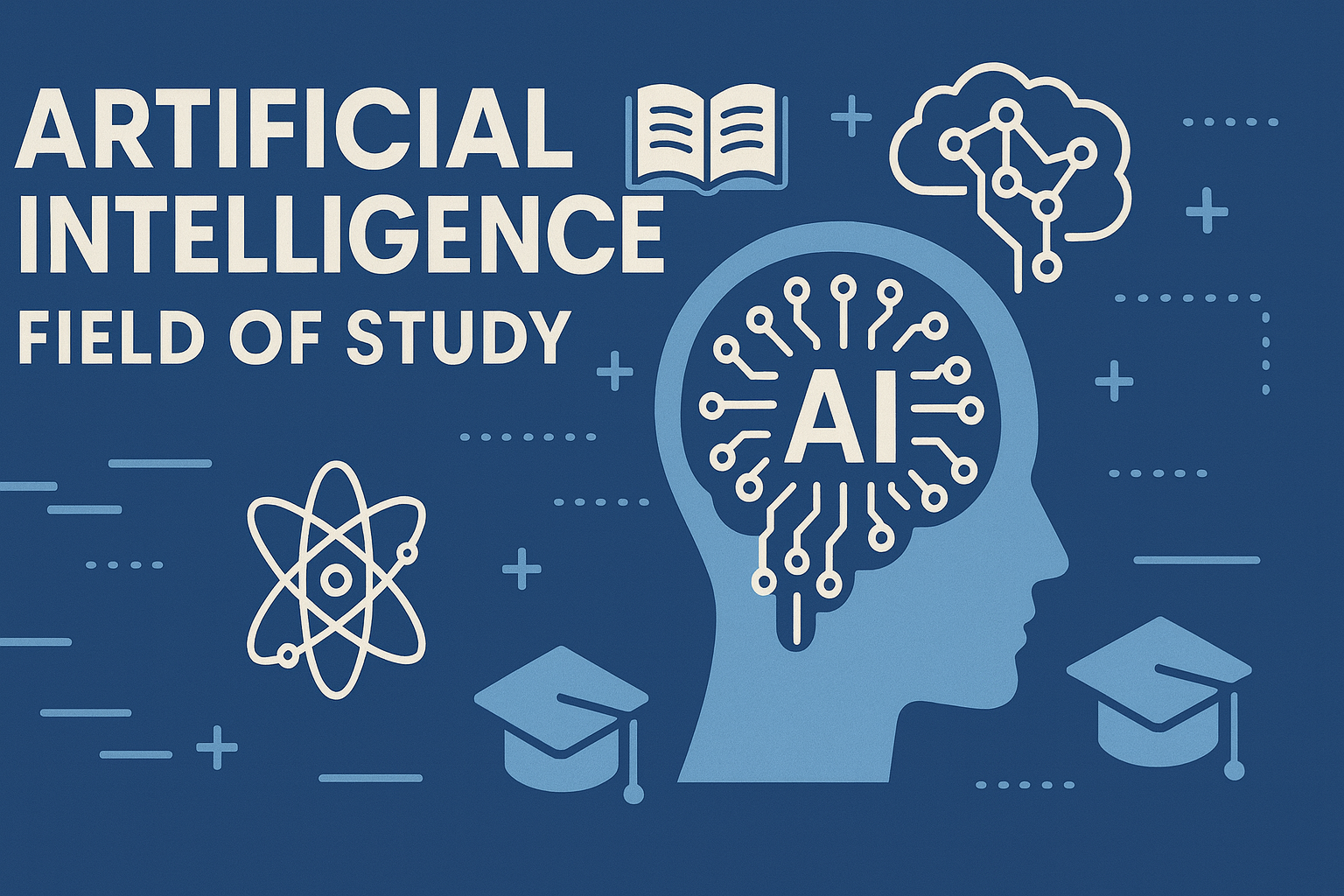
Artificial Intelligence (AI) has emerged as one of the most transformative fields of modern technology, combining Machine Learning, Deep Learning, and Neural Networks to create systems that mimic human intelligence. As a dynamic discipline, AI integrates principles from Data Science, Computer Science, and Cognitive Computing to build Intelligent Systems capable of perception, reasoning, and decision-making.
Understanding Artificial Intelligence
At its core, Artificial Intelligence focuses on developing algorithms that enable machines to simulate cognitive functions like learning, problem-solving, and understanding. With advancements in Supervised Learning and Unsupervised Learning, AI systems can now recognize speech, interpret images, and even comprehend natural language. Branches such as Natural Language Processing (NLP) empower computers to understand and generate human language, while Computer Vision allows machines to interpret visual data from the world around them.
Key Components of AI
Machine Learning (ML): This subfield of AI involves training models using data and algorithms to make predictions or classifications without explicit programming. Model Training is a crucial step where computers analyze vast datasets to identify patterns and improve performance.
Deep Learning: A subset of Machine Learning based on Artificial Neural Networks (ANNs), Deep Learning helps systems process complex data structures like images, sound, and text. It powers applications such as facial recognition, autonomous driving, and intelligent voice assistants.
Reinforcement Learning: This technique enables AI agents to learn by interacting with their environment, receiving feedback or “rewards” for performing the right actions—crucial for robotics, gaming, and adaptive control systems.
Cognitive Computing: By combining psychological insights with computational models, Cognitive Computing aims to replicate human-like understanding and context reasoning, allowing AI to handle ambiguous situations intelligently.
Applications Across Industries
AI-driven Automation is revolutionizing industries such as healthcare, finance, retail, and manufacturing. In finance, Predictive Analytics powered by AI models help detect fraud and forecast market trends. In healthcare, Neural Networks support medical imaging and disease prediction. Meanwhile, in customer support, NLP-based chatbots provide personalized, efficient assistance 24/7.
The Future of AI as a Field of Study
As technology evolves, the scope of Artificial Intelligence continues to expand. AI researchers now focus on improving generalization, explainability, and ethical governance of intelligent systems. Universities and technology companies are investing in interdisciplinary AI programs that combine Data Science, neuroscience, and linguistics to innovate across multiple domains.
For aspiring students and professionals, mastering tools like Machine Learning algorithms, Deep Neural Networks, and Reinforcement Learning models opens doors to careers in research, automation engineering, and AI strategy development.
The Artificial Intelligence field of study is not just about creating smart systems—it’s about enhancing human capability through innovation, data, and intelligent design, shaping the future of technology and society.
Statistical Insight: AI Course Demand
The AI education market is currently valued at over $7 billion and is forecasted to reach $112 billion by 2034, expanding at an annual growth rate above 36%. In addition, surveys estimate that in the U.S. alone, nearly 57 million people express interest in learning AI-based skills—highlighting extraordinary unmet demand, as higher education institutions are still ramping up their credit-bearing AI offerings. Enrollments in AI-related online courses have jumped approximately 9% in just the first half of 2025, reflecting industry needs for skills in Natural Language Processing (NLP), Computer Vision, Reinforcement Learning, and Artificial Neural Networks (ANNs).
Conclusion: A Flourishing Field
As AI transforms jobs and industry landscapes, the collective need for trained professionals in Intelligent Systems, Predictive Analytics, and Data Science is only increasing. Not only do AI courses keep pace with global demand—they drive it: by 2030, AI is projected to create up to 4 million new jobs in India alone, with a worldwide surge in AI engineering, data science, and automation careers. Pursuing rigorous study in AI places individuals at the forefront of opportunity in technology and innovation, making it one of the most strategically valuable fields of study today.
Find a course provider to learn Artificial Intelligence Engineer
Java training | J2EE training | J2EE Jboss training | Apache JMeter trainingTake the next step towards your professional goals in Artificial Intelligence Engineer
Don't hesitate to talk with our course advisor right now
Receive a call
Contact NowMake a call
+1-732-338-7323Enroll for the next batch
Artificial Intelligence Engineer
- Jan 28 2026
- Online
Artificial Intelligence Engineer
- Jan 29 2026
- Online
Artificial Intelligence Engineer
- Jan 30 2026
- Online
Related blogs on Artificial Intelligence Engineer to learn more

Artificial Intelligence – A Growing Field of Study for Modern Learners
Artificial Intelligence is becoming a top study choice due to high job demand and future scope. This blog explains key subjects, career opportunities, and a simple AI study roadmap to help beginners start learning and build a strong career in the AI

Train Like an AI Engineer: The Smartest Career Move You’ll Make This Year!
Why AI Engineering Is the Hottest Skillset Right Now From self-driving cars to chatbots that sound eerily human, Artificial Intelligence is no longer science fiction — it’s the backbone of modern tech. And guess what? Companies across the USA and Can
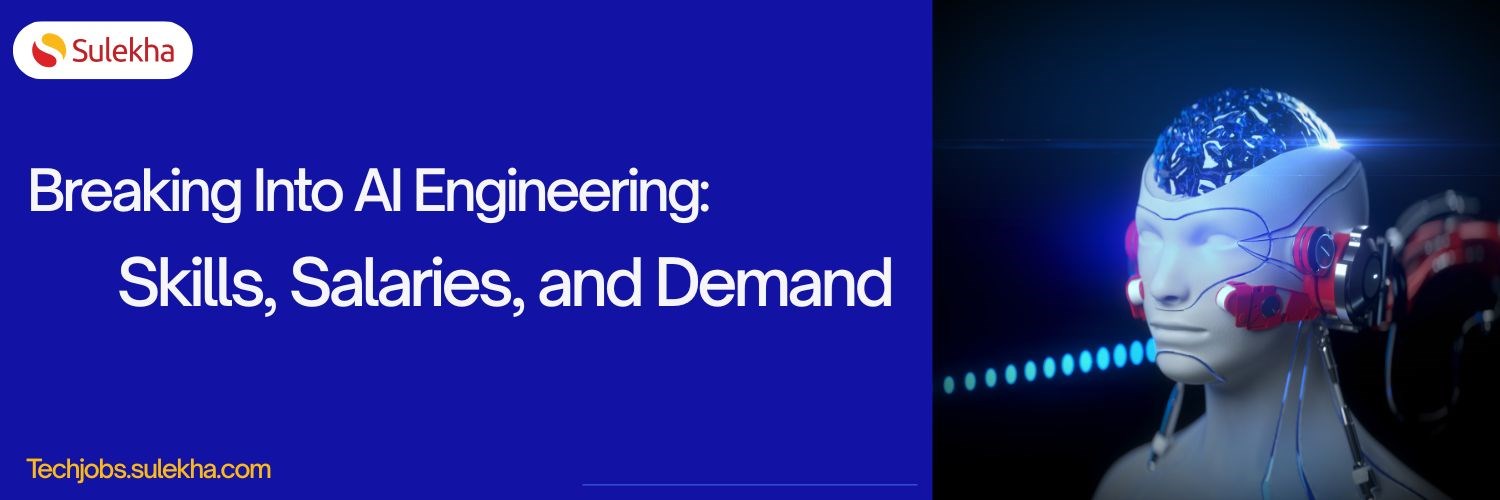
Breaking Into AI Engineering: Skills, Salaries, and Demand in the US
Discover how to break into AI engineering with insights on essential skills, salary expectations, and rising demand in the US. Learn about career paths, certifications, and how to succeed in one of tech’s fastest-growing fields.
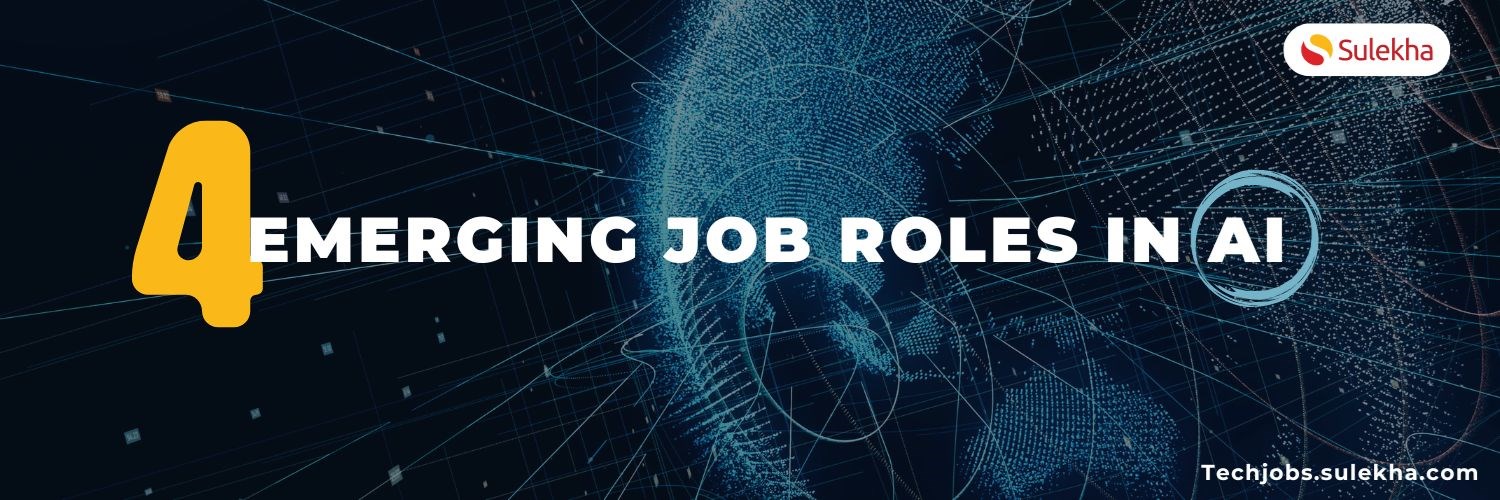
Top Four emerging job roles in AI
Explore four emerging AI job roles including AI ethicist, trainer, interaction designer, and safety engineer, each shaping the future of ethical and secure AI technology. Learn about their responsibilities and the essential skills required in this ev

Prompt Engineering
We have discussed comprehensive entitles of what is prompt engineering, types of prompts, element and method of prompt engineering, and application of prompt engineering in-detail.
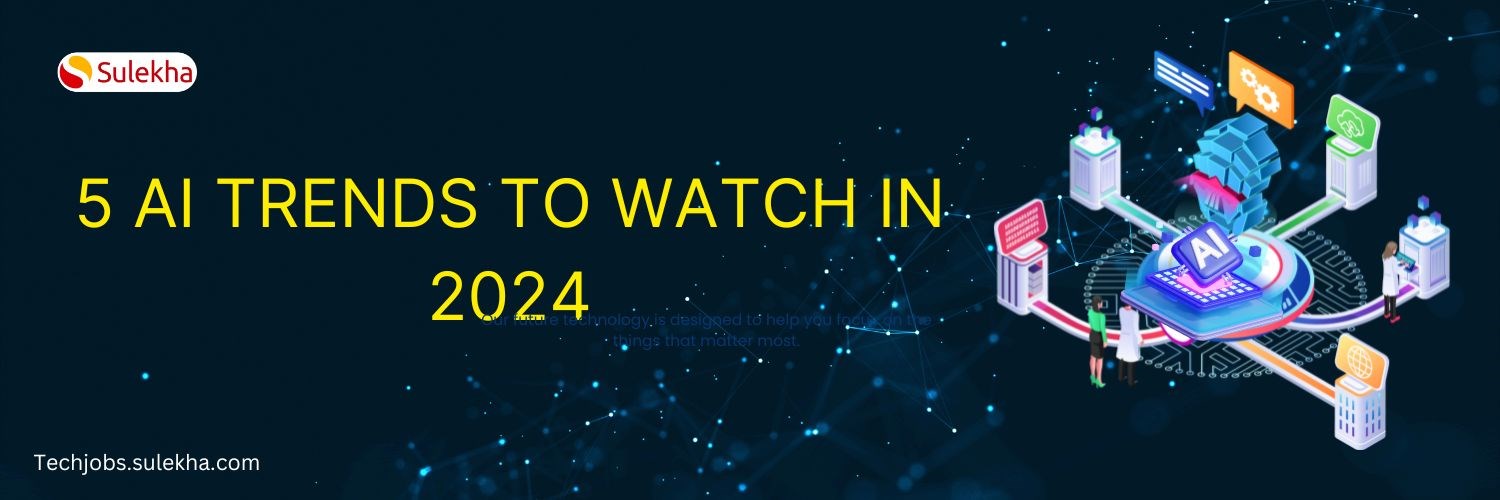
5 AI Trends to Watch in 2024
Discover the top 5 AI trends that will shape the future in 2024, from advancements in natural language processing to the growing impact of AI on healthcare and beyond.
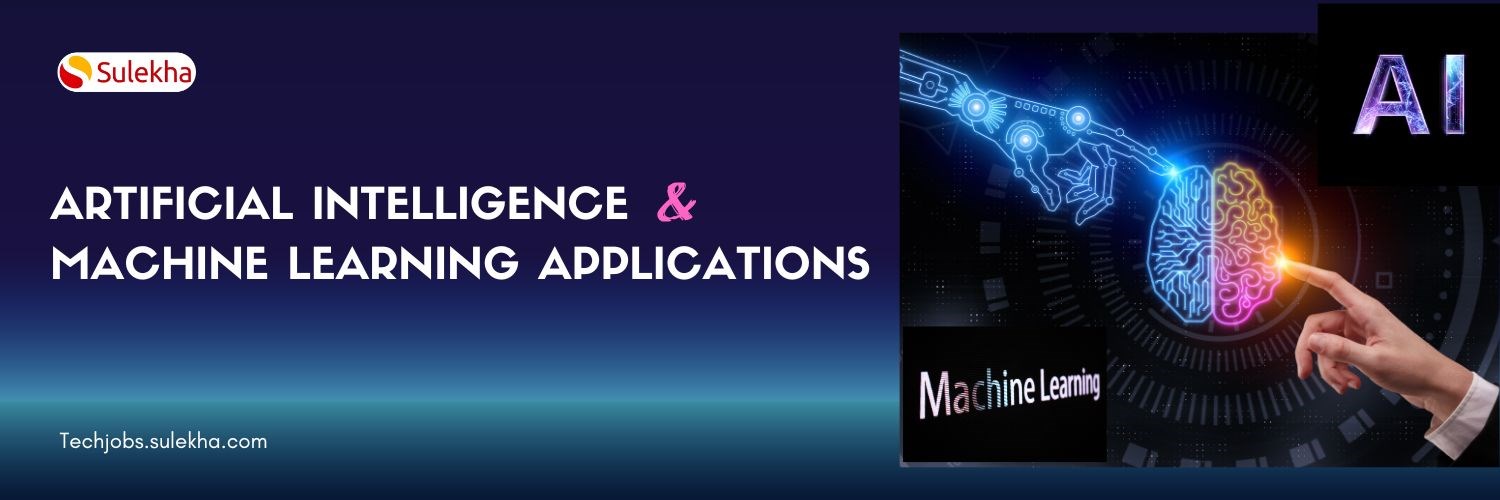
Artificial Intelligence and Machine Learning applications
Discover the vast applications of Artificial Intelligence (AI) and Machine Learning (ML) across various industries, from healthcare to finance, and learn how these technologies are transforming the way we live and work.
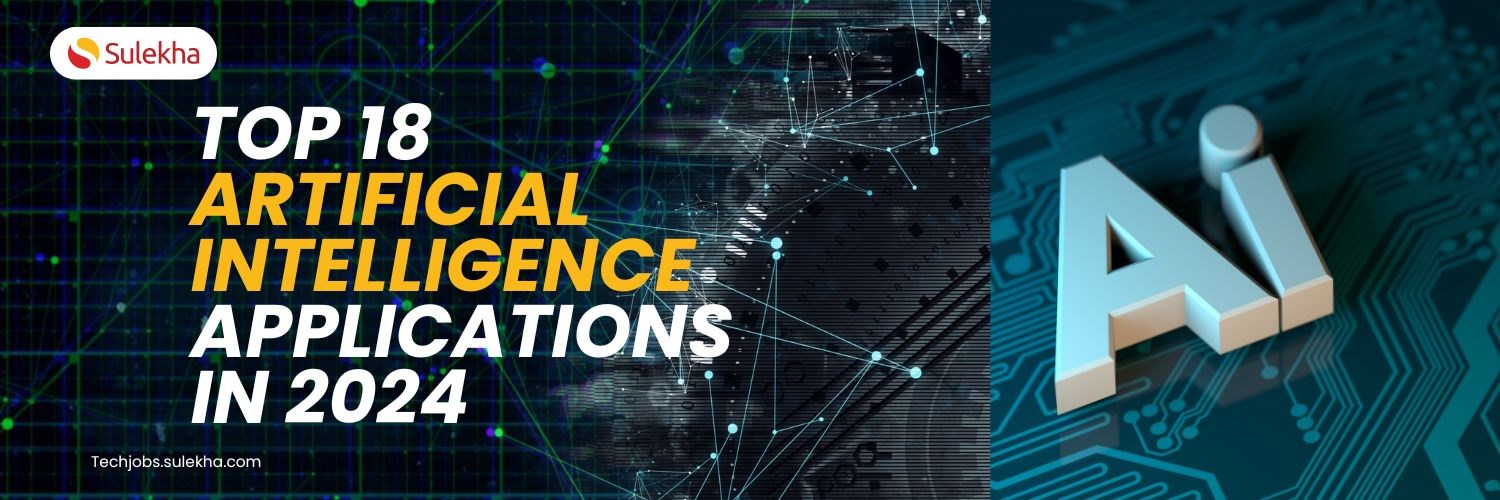
Top 18 Artificial Intelligence Applications in 2024
Explore the diverse applications of machine learning in various industries, including healthcare, finance, retail, and transportation.

What is Generative AI? Everything You Need to Know
Generative AI is not just a career path; it's a gateway to a future where innovation and creativity intersect. This blog uncovers why generative AI is not just a career but a pathway to shaping the future of work.

Devin AI - Friend or Foe of Software Developers
In a groundbreaking leap for artificial intelligence, US-based startup Cognition has unveiled Devin AI - an autonomous AI system capable of conceptualizing, designing, and coding software from scratch. This remarkable feat ushers in a new era, blurri
Latest blogs on technology to explore

Drug Safety & Pharmacovigilance: Your 2026 Career Passport to a Booming Healthcare Industry!
Why This Course Is the Hottest Ticket for Science Grads & Healthcare Pros (No Lab Coat Required!)" The Exploding Demand for Drug Safety Experts "Did you know? The global pharmacovigilance market is set to hit $12.5B by 2026 (Grand View Research, 202

Launch Your Tech Career: Why Mastering AWS Foundation is Your Golden Ticket in 2026
There’s one skill that can open all those doors — Amazon Web Services (AWS) Foundation

Data Science in 2026: The Hottest Skill of the Decade (And How Sulekha IT Services Helps You Master It!)
Data Science: The Career that’s everywhere—and Nowhere Near Slowing Down "From Netflix recommendations to self-driving cars, data science is the secret sauce behind the tech you use every day. And here’s the kicker: The U.S. alone will have 11.5 mill

Salesforce Admin in 2026: The Career Goldmine You Didn’t Know You Needed (And How to Break In!)
The Salesforce Boom: Why Admins Are in Crazy Demand "Did you know? Salesforce is the 1 CRM platform worldwide, used by 150,000+ companies—including giants like Amazon, Coca-Cola, and Spotify (Salesforce, 2025). And here’s the kicker: Every single one

Python Power: Why 2026 Belongs to Coders Who Think in Python
If the past decade was about learning to code, the next one is about coding smarter. And in 2026, the smartest move for any IT enthusiast is learning Python — the language that powers AI models, automates the web, and drives data decisions across ind

The Tableau Revolution of 2025
"In a world drowning in data, companies aren’t just looking for analysts—they’re hunting for storytellers who can turn numbers into decisions. Enter Tableau, the #1 data visualization tool used by 86% of Fortune 500 companies (Tableau, 2024). Whether

From Student to AI Pro: What Does Prompt Engineering Entail and How Do You Start?
Explore the growing field of prompt engineering, a vital skill for AI enthusiasts. Learn how to craft optimized prompts for tools like ChatGPT and Gemini, and discover the career opportunities and skills needed to succeed in this fast-evolving indust

How Security Classification Guides Strengthen Data Protection in Modern Cybersecurity
A Security Classification Guide (SCG) defines data protection standards, ensuring sensitive information is handled securely across all levels. By outlining confidentiality, access controls, and declassification procedures, SCGs strengthen cybersecuri

Artificial Intelligence – A Growing Field of Study for Modern Learners
Artificial Intelligence is becoming a top study choice due to high job demand and future scope. This blog explains key subjects, career opportunities, and a simple AI study roadmap to help beginners start learning and build a strong career in the AI

Java in 2026: Why This ‘Old’ Language Is Still Your Golden Ticket to a Tech Career (And Where to Learn It!
Think Java is old news? Think again! 90% of Fortune 500 companies (yes, including Google, Amazon, and Netflix) run on Java (Oracle, 2025). From Android apps to banking systems, Java is the backbone of tech—and Sulekha IT Services is your fast track t